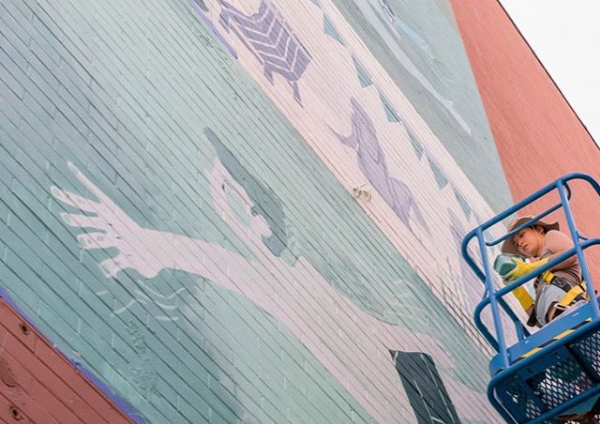By Melissa Huggins
Executive Director, Spokane Arts
Arts, culture and creativity comprise the heart of our city in myriad ways. They gather communities, build social cohesion, and power our economy by attracting workforce talent, driving innovation, and drawing tourists.
They also have a ripple effect on other local businesses. Each person who buys a ticket to a cultural event spends an average of $31.47 beyond the cost of the ticket by going out to dinner, parking downtown, buying merch, or having a cocktail after the show. Nationally, Americans for the Arts calculates that equates to over $100 billion in ancillary spending in communities, directly because of cultural events.
As the Spokane economy rebounds from the pandemic, it’s worth noting that in past recessions, if the arts and culture sector was able to rebound quickly, the general economy recovered more rapidly. Nationwide, creative industries have been a fast-growth sector in past economic turbulence, partly because they aren’t reliant on other sectors’ volatility, “unlike more conventional industrial supply chain dynamics,” according to an NASAA study published in January 2021. The study indicates that investing in arts and culture can “improve the health of the broader economy” and provide a path out of economic crisis.
Here in Spokane, spurring recovery by investing in creativity could take many forms. While highlighting a few here, local leaders in the creative sector can share dozens more. The good news is that much of the groundwork is already laid: studies conducted, best practices researched, and community input gathered. Now we just need forward-thinking partners willing to make strategic investments.
Street Art
While Spokane’s murals program has grown in quality and quantity over the past 5–7 years, engaging residents and visitors alike, an area largely unexplored has been street art, which includes intersection murals, alleyway murals, and colorful crosswalks to alert drivers of pedestrian crossings. The City of Spokane and Spokane Arts are working on a policy now. Once in place, the potential exists to transform entire alleyways or plazas into colorful murals, which would carve out new public spaces, increase pedestrians’ feelings of safety, deter graffiti, and benefit adjacent property owners. Even better: neighborhoods could participate in selecting artists, and in some cases, help install the mural, giving community members a sense of civic pride and increasing the likelihood that public space will remain clean and safe.
Cultural Space
Many cities across the nation incentivize the creation of cultural spaces within development or redevelopment projects. Seattle has an entire PDA devoted to creating art and cultural spaces, with a focus on creating or preserving space for BIPOC communities often left out of real estate development. If, for example, an empty building is transformed into a boutique hotel, why not also carve out a gallery space or artist-in-residence studio? Imagine walking past a downtown window on First Friday and seeing a Native artist demonstrating traditional art techniques passed down through generations, or a ceramic artist throwing pottery. Dedicating even small spaces for cultural use can activate a larger property, draw people in to patronize that business or those around it, and strengthen ties with the local community. Win, win, win.
Affordable Housing/Studio Space for Creatives
Compared to other cities, Spokane is sorely in need of investment in this area. While there are ways for nurses, teachers, police officers, and other workers to find affordable housing, no such dedicated program or incentive exists locally to offer affordable housing to creatives. There is significant demand for affordable housing near public transit and other amenities, and as conversations continue about how our office space-laden downtown should adapt post-COVID, it’s worth pointing out that certain properties are ripe for transformation into mixed-use spaces that could feature retail, gallery or studio space on the street level, with affordable housing units above, designated for creative professionals whose talent and expertise we want to keep in Spokane.
Whether we call it creativity, arts or culture, the data is undeniable: creative industries represent a significant driver of our regional economy, and their economic impact spills over to benefit tourism, hospitality and local business. Investing in creativity means investing in the long-term health, safety, livability and economic vitality of Spokane.

